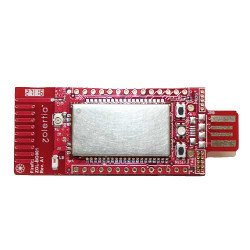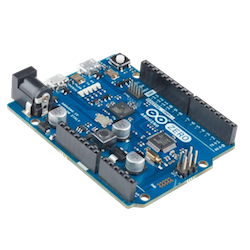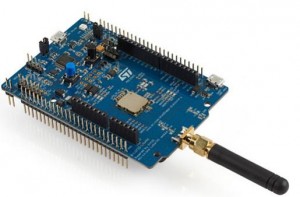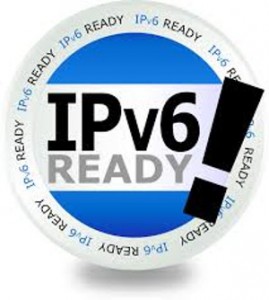New boards available on IoT-LAB: Zolertia Firefly and Arduino Zero
22 May 2018


After the addition of SAMR21 and LoRa boards we want to formally announce the availability of new types of boards on some IoT-LAB sites, which will permit a wider range of possibilities on the testbed.
- 9 Zolertia Firefly boards, featuring two radios (2.4 GHz 802.15.4 Zigbee and sub-GHz), have been deployed on the Lille site. They are deployed throughout the building and, depending on the firmware you flash, will enable heterogeneous networking with co-located regular M3 boards.
- 3 Arduino Zero boards with XBee shields have been deployed on the Saclay site. They are close to the existing M3 and SAMR21 boards and thus allow to test 802.15.4 (2.4GHz) interoperability between different types of radio.
If you have some hardware that you would like to see deployed on Iot-LAB, check out this documentation to implement the initial support and we will help you to finalize the on site deployment.
Don’t hesitate to reach out to us on https://github.com/iot-lab/iot-lab/issues/ for any issue you might have with the new boards.
New LoRa/Sigfox boards available
14 May 2018

We are very proud to announce you the availability of 25 new LoRa/Sigfox boards in FIT IoT-LAB. The boards are ST B-L072Z-LRWAN1 boards with ST MEMS extension X-NUCLEO-IKS01A2 and are only available in Saclay site for the moment.
One important thing is the restricted access to these boards: due to the regulated access to the ISM wireless bands in Europe (LoRa EU868 band), we will grant the access to them only for specifically approved users.
Please send a request by email to admin@iot-lab.info explaining your motivation and detailing your use case if you want to use them.
A new tutorial is written to guide you through your first steps using LoRaWAN with RIOT and TheThingsNetwork.
Update of IoT-LAB tools
07 May 2018

We would like to inform you about tools updates we made on the IoT-LAB SSH frontends.
GNU Toolchain for ARM
Version 7.2 of the GNU Toolchain for ARM is now installed in /opt/gcc-arm-none-eabi-7-2017-q4-major in addition to the actual one, version 4.9, which is still used by default. To know more on how to use it or set it as the default version, see the IoT-LAB wiki.
IoT-LAB CLI Tools
For a better user experience, we released a new version of IoT-LAB command-line tools (v2.5.3). It mainly consists in renaming, adding a common prefix to the different commands.
Thus now you should use:
- iotlab-experiment (experiment-cli)
- iotlab-node (node-cli)
- iotlab-profile (profile-cli)
- iotlab-auth (auth-cli)
- iotlab-robot (robot-cli)
- iotlab-ssh (open-a8-cli)
All legacy names are always available to ensure compatibility with old scripts and tools. A deprecated message is printed when using legacy commands.
Of course you are encouraged to update.
Paris site is IPv6 ready
27 Apr 2018

We are pleased to announce that the public IPv6 service on the FIT IoT-LAB testbed as been extended with the Paris site.
As a reminder, five sites implement now this service:
You can find more details about global IPv6 subnetting by reading the IPv6 documentation.
Moreover, on the Learn page, you will find some tutorials to learn how to use public IPv6 addresses with Contiki or RIOT.
Join the first FIT/Grid5K school
23 Feb 2018
FIT and Grid5k infrastructures join their strengths to allow even more IoT experience into the newly SILECS infrastructure.
As a first step, we are proud to announce the first joint school in which you will enjoy all testbeds, facilities and possibilities we offer through presentations, tutorials and challenges.
Please, join us in Sophia Antipolis, on the French Riviera ! Registrations are open, and free !
For more information, please visit this link.
See you soon there.